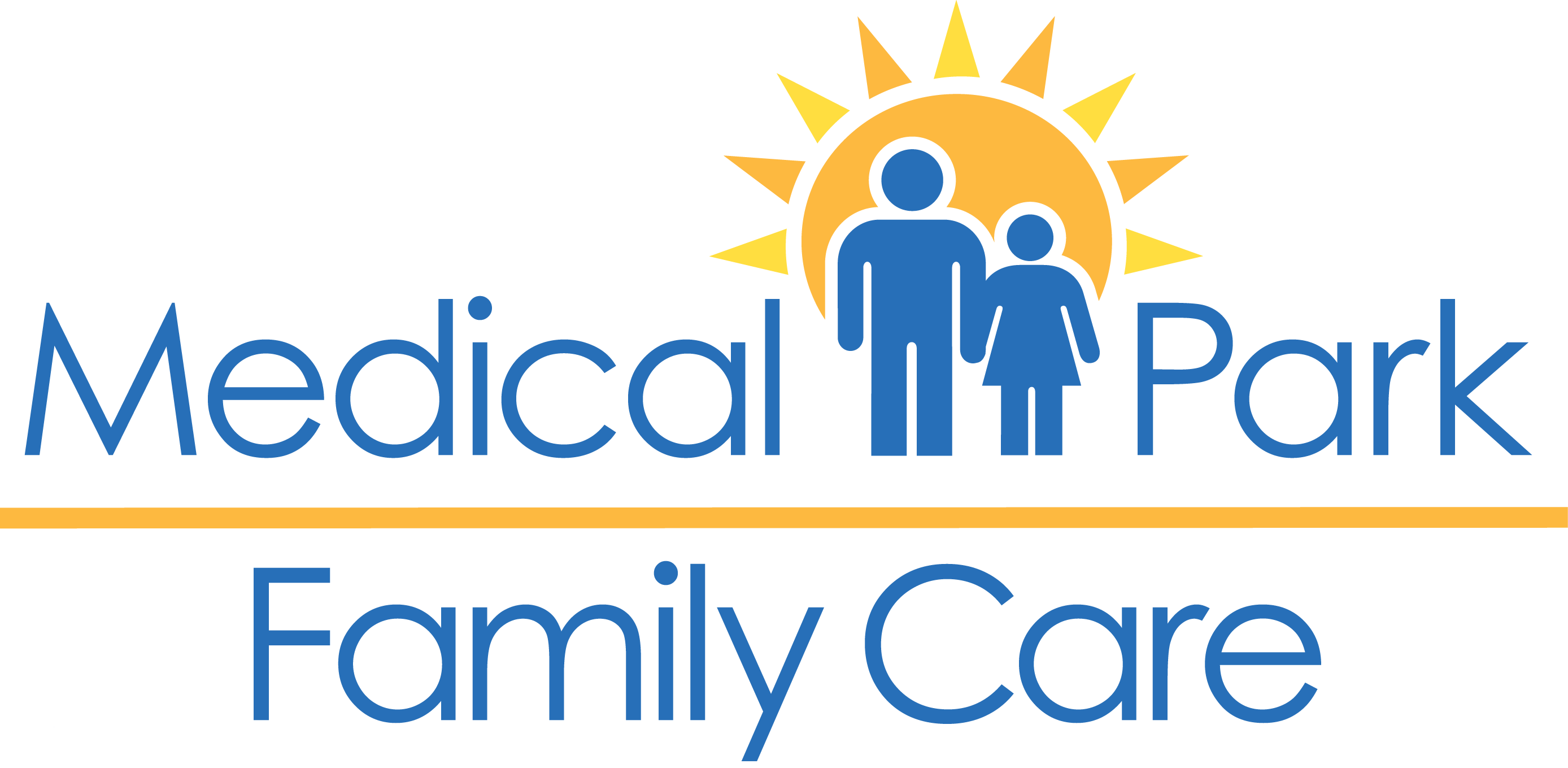Presented by Medical Park Family Care
For student athletes, fall sports physicals are as much a sign of the season as the leaves changing color and back-to-school shopping trips.
But athletes aren’t the only students who should be getting checkups each year. All kids benefit from annual visits to the doctor, said Dr. Zachary Buck, an osteopathic physician specializing in family medicine at Medical Park Family Care in Anchorage.
Annual checkups can uncover health issues early — from vision problems to mental health concerns — and put kids on a course to lifelong wellness.
“All too often, we treat healthcare as sick-care,” Buck said. “The more readily we can see or address problems before they become a significant issue, all the better for the children and the family.”
Medical Park Administrator Joe Fong experienced that firsthand. Taking his daughter for regular well child checks helped identify health issues that may not have been apparent otherwise.
“Those annual visits allow our providers to help kids be healthy and stay healthy,” he said.
Medical Park Family Care has been serving families in the Anchorage area for more than 50 years. The clinic offers pediatric care, family medicine, specialty exams, and other services for a vast array of patient needs.
:quality(70)/cloudfront-us-east-1.images.arcpublishing.com/adn/V2F2KJCKWJBVRMYSVC53IXFOSM.jpg)
Buck and the other Medical Park physicians are focused on a preventative model of care, which includes offering screenings and vaccinations to keep patients from getting sick in the first place.
But these regular checkups have greater importance, too.
Why consistent care in childhood leads to ‘better health outcomes their whole life’
It’s a common misconception that doctors’ visits are only for sick people.
Dr. Daniel Mejia, a family medicine doctor at Medical Park, said it’s important for kids to get to know their doctors while they’re healthy.
“Then patients are more open to us when things are not OK,” he said.
Early and routine doctors’ visits also build healthy habits. Kids who see their doctors every year are more likely to see their doctors as adults, “and have better health outcomes throughout their whole life,” Buck said.
Buck said that’s especially important for young kids, who don’t always vocalize to parents how they’re feeling — or babies, who can’t.
“When things are going well, the thought doesn’t really come that readily that, ‘Oh, I should go check with my doctor and make sure things are as they should be,’” Buck said. “But a lot of times, especially for first-time parents, you just don’t really know.”
The American Academy of Pediatrics recommends children maintain consistent wellness visits throughout youth, with greater frequency during infancy and early childhood years.
At checkups, Medical Park providers screen patients for diseases and conduct vision tests. Mejia said he sees kids every week who struggle with poor eyesight and need glasses.
Physical health isn’t the only thing that comes up in annual appointments.
Medical Park also offers depression and anxiety screenings. Physicians connect with patients about stress management and building healthy behaviors. That’s particularly pertinent as the rate of depression and anxiety in kids increases year over year.
Doctors can also make sure patients are meeting certain developmental milestones.
“Something that maybe doesn’t seem abnormal could be,” Mejia said. “That’s something we can address earlier with certain changes at home. But if we are to let that go on for a long time, it can become a full-blown delay. So, getting on top of that early is really important.”
Both providers agree: Making minor adjustments early is a lot easier than making major adjustments down the road.
The powerful impact of making connections
Kids’ early relationships with their doctors can be formative. It’s important children and teenagers gain trust in their providers, so they feel comfortable coming back to the doctor’s office again and again, and in times of need.
In order to build trust, patients must feel heard. Mejia, who is bilingual, said Spanish-speaking patients often appreciate when they can connect with him directly, instead of going through an interpreter.
:quality(70)/cloudfront-us-east-1.images.arcpublishing.com/adn/SFDDFEUSHRBKRILF727M6QM6NI.jpg)
“Whenever I’m able to give them a call and give them lab results, or give them an update, or even just a checkup to see how their child is doing after an ear infection or a cold — they really appreciate that,” Mejia said.
“I like forming those connections with patients and their parents,” he said.
Better relationships also lead to more accurate diagnoses and treatments. Buck sometimes works with entire families, treating multiple members of the same household. That gives him a more holistic view into his patients’ lives, which fits in with the philosophy of his practice as a Doctor of Osteopathic Medicine, or DO.
Buck described his training as using manual and preventative treatment to heal, treating patients’ entire bodies and minds in a holistic way. He also tries to include parents in treatment plans, teaching them how to soothe ear infections or body aches at home, for example.
Buck said altogether, regular check-ins with doctors of any kind show kids that their health really does matter. The older, healthy patients who are seen regularly have often learned those habits growing up and were taught that their health was a big priority.
“It’s almost a part of their self-image,” he said. “That they matter, that their body matters and they feel it’s important to take care of themselves.”
Medical Park Family Care is a local and physician-owned clinic that has been caring for generations of Alaskans since 1971.

This article was produced by the sponsored content department of Anchorage Daily News in collaboration with Medical Park Family Care. The ADN newsroom was not involved in its production.
:quality(70)/cloudfront-us-east-1.images.arcpublishing.com/adn/K5LJK3ARZJFH7KRSR66QGHHSPQ.jpg)